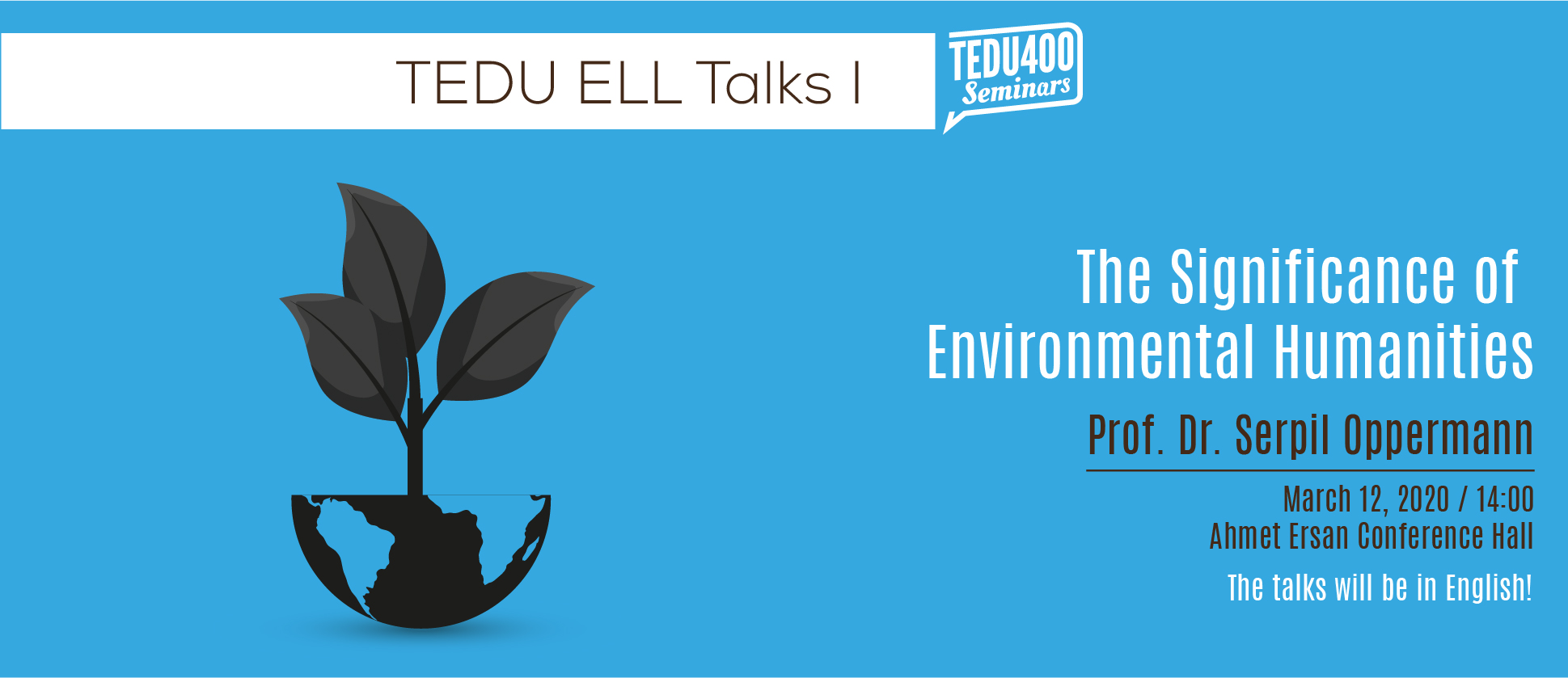TEDU ELL Buluşmaları: The Significance of Environmental Humanities
Tarih: -
Konum: Ahmet Ersan Conference Hall

Prof. Dr. Serpil Oppermann (Kapadokya Üniversitesi, Environmental Humanities Center Kurucu Başkanı, Hacettepe Üniversitesi İngiliz Dili ve Edebiyatı Emekli Öğretim Üyesi) 12 Mart 2020 Perşembe günü TEDÜ'ye geliyor! Oppermann'ın “The Significance of Environmental Humanities” başlıklı konuşmasına tüm TEDÜ ailesini bekleriz.
Konuşmanın dili İngilizcedir.
Özet:
This presentation is about the significance of the Environmental Humanities in addressing the underlying causes of global ecological challenges through analyses of literary and cultural narratives, ideologies and spiritual values, and economic and political practices that together structure our environmental relations. Evidently, the planetary crises are not the concerns of Earth scientists only, as the signals of environmental risks have long extended into the social sphere—a sphere where, after all, they are also rooted. In this regard, I will explain why many scientific warnings fail to motivate people to make changes and how the Environmental Humanities can be instrumental in preparing the way for transformative action.
If the main driver of planetary change is the human factor, the Environmental Humanities perspectives become crucial in environmental problem-solving and decision-making. Engaging with the global reach of many environmental problems, justice issues, values, and theoretical conceptions of the human, the Environmental Humanities addresses the complexities of material networks that cross through local and global cultures, economic and social practices, and political discourses. To meet the challenges in an age of escalating environmental anxiety, the field brings together diverse disciplinary approaches and insights from science studies, cultural studies, humanities, and social sciences, employing intermingled ethical, literary, cultural, philosophical, social, geological, and biological perspectives.